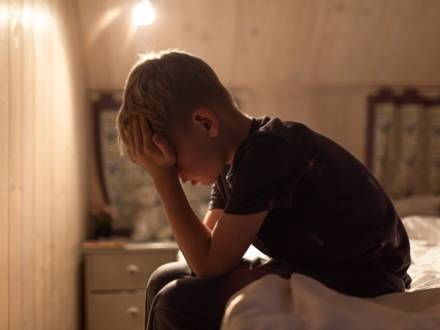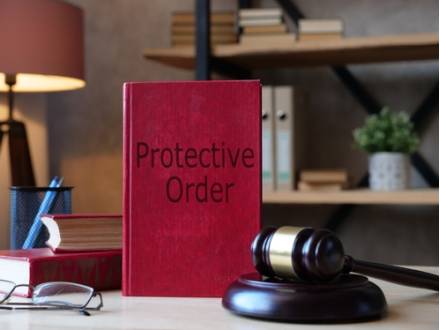Arlington Heights, IL 60005
Recent Blog Posts
I'm Afraid to Start the Divorce Process with My Abusive Spouse
 If you are in an abusive marriage, the thought of filing for divorce can feel terrifying. You might worry about how your spouse will react, whether you will be safe, or if you can afford to leave.
If you are in an abusive marriage, the thought of filing for divorce can feel terrifying. You might worry about how your spouse will react, whether you will be safe, or if you can afford to leave.
You are not alone. According to research published by Operation Safe Escape, approximately one in four divorces cite abuse as a significant reason for ending the marriage. Many people face the same fear and uncertainty you are experiencing right now. If you are considering divorce in 2026, but fear your spouse's reaction, a Rolling Meadows, IL divorce attorney can help you create a safe plan and protect your rights.
What Are the First Steps If I Want to Leave an Abusive Marriage?
Your safety comes first. Before you do anything else, make sure you and your children are safe. This may mean staying in the marriage while you prepare. It may also mean leaving immediately if you are in danger.
Establishing Paternity of Your Child
 When a married woman gives birth, her husband is automatically assumed to be the father. But for children born to unmarried parents, things are different. While mothers automatically have the right to make decisions about their children until a court order states otherwise, "paternity" must be set up before fathers can get parenting time or other legal benefits. Paternity also affects the child’s access to things like Social Security benefits later in life. If you have questions about paternity in 2026, our Arlington Heights family law attorney can help answer them.
When a married woman gives birth, her husband is automatically assumed to be the father. But for children born to unmarried parents, things are different. While mothers automatically have the right to make decisions about their children until a court order states otherwise, "paternity" must be set up before fathers can get parenting time or other legal benefits. Paternity also affects the child’s access to things like Social Security benefits later in life. If you have questions about paternity in 2026, our Arlington Heights family law attorney can help answer them.
What Are the Benefits for Mothers of Establishing Paternity?
When an unmarried woman gives birth, the biological father is an "alleged father." This means he has no legal obligation to support your child if paternity is not established. He also has no right to visit the child. Before you can get child support, financial help with insurance, or other things from the father, you have to prove he is the child's father.
Can Parental Alienation Be Emotional Abuse?
 When parents split up, children often suffer the consequences. It is, unfortunately, somewhat common for one divorced parent to turn a child against the other parent. This is called "parental alienation" and can happen even if the parent doesn’t mean to do it. Parental alienation is common after difficult divorces, but it can also appear where there hasn’t been a divorce.
When parents split up, children often suffer the consequences. It is, unfortunately, somewhat common for one divorced parent to turn a child against the other parent. This is called "parental alienation" and can happen even if the parent doesn’t mean to do it. Parental alienation is common after difficult divorces, but it can also appear where there hasn’t been a divorce.
Even if the intent is to hurt the other parent, the child is the one who pays the heaviest price. Because of this, it is important to understand what the signs of both parental alienation and emotional abuse are, and to know what you can do about them if they are happening to you or your children.
If you are worried this is happening to your child in 2026, our Arlington Heights family law attorney can help you decide what to do next.
What is Parental Alienation?
According to Psychology Today, parental alienation is when one parent changes how a child thinks and feels about the other parent. The child starts to believe negative and untrue things about the other parent and may stop wanting to spend time with that parent or stop showing them love and respect.
Can Fathers Oppose Child Relocation in Illinois?
 Fathers in Illinois have the right to oppose a child relocation. The court will decide the issue based on what serves the child’s best interests, not on whether the parent requesting the move is the mother or the father. A proposed relocation can affect parenting time, school stability, and a child’s daily life, which is why these cases often become contested.
Fathers in Illinois have the right to oppose a child relocation. The court will decide the issue based on what serves the child’s best interests, not on whether the parent requesting the move is the mother or the father. A proposed relocation can affect parenting time, school stability, and a child’s daily life, which is why these cases often become contested.
Relocation disputes arise more often than many parents expect, especially after divorce or separation. If you are concerned about your co-parent moving with your child, our Arlington Heights, IL child custody lawyer can help.
What Does Child Relocation Mean Under Illinois Law?
Under Illinois law, relocation has a specific legal meaning. It does not apply to every move. Instead, it refers to a move that increases the distance between the child and the other parent beyond certain limits.
Do You Have To Go to Court for a Divorce in Illinois?
 In Illinois, every divorce is handled through the court system, but that does not always mean spending time in a courtroom. Some cases move forward with very limited court involvement, while others require formal hearings. The first step is speaking with an Arlington Heights, IL divorce lawyer. At Law Offices of Donald J. Cosley, we can help you find the right avenue to divorce based on the details of your case.
In Illinois, every divorce is handled through the court system, but that does not always mean spending time in a courtroom. Some cases move forward with very limited court involvement, while others require formal hearings. The first step is speaking with an Arlington Heights, IL divorce lawyer. At Law Offices of Donald J. Cosley, we can help you find the right avenue to divorce based on the details of your case.
Can I Get Divorced Without Going to Court in Illinois?
Many Illinois divorces involve little or no time in the courtroom. When both spouses agree on all major issues, the case is considered uncontested. This lets the court know that you agree on how you will divide everything from custody to property.
Illinois law allows couples to resolve these issues through a written settlement agreement. Under 750 ILCS 5/502, a judge may approve your agreement as long as it is fair and reasonable. Once approved, the court can enter the final divorce judgment without a lengthy hearing. In some cases, only a brief appearance is required, or the matter may be handled through documents, depending on local court rules.
What Do I Do if My Prenup Is No Longer Fair?
 Over time, life can change in ways no one expected. If your prenuptial agreement no longer feels fair, you have legal options. Illinois law allows you to review, amend, or challenge an agreement that no longer fits your circumstances. Speaking with an experienced Rolling Meadows, IL prenuptial agreement lawyer is the first step. At Law Offices of Donald J. Cosley, we can help you draft a fair, enforceable agreement.
Over time, life can change in ways no one expected. If your prenuptial agreement no longer feels fair, you have legal options. Illinois law allows you to review, amend, or challenge an agreement that no longer fits your circumstances. Speaking with an experienced Rolling Meadows, IL prenuptial agreement lawyer is the first step. At Law Offices of Donald J. Cosley, we can help you draft a fair, enforceable agreement.
Can a Prenup Be Changed After Marriage in Illinois?
As a couple, you might buy a new home together, welcome a child, or build a successful business. With each change, your original prenuptial agreement may make less and less sense. In such situations, it is common to update the agreement or even nullify it and create a new postnuptial agreement that better reflects your current life and goals.
How Long Do I Have To Pay Spousal Support in Illinois?
 The amount of time you must pay spousal support, also known as maintenance or alimony, depends on how long you were married, how much each person earns, and the financial needs of both sides. The purpose is not to punish one spouse or reward the other. It is designed to make things fair when one person may need extra help after the marriage ends. Talking with an experienced Arlington Heights, IL spousal maintenance lawyer can help you understand how long payments may last and what options you have if things change in the future.
The amount of time you must pay spousal support, also known as maintenance or alimony, depends on how long you were married, how much each person earns, and the financial needs of both sides. The purpose is not to punish one spouse or reward the other. It is designed to make things fair when one person may need extra help after the marriage ends. Talking with an experienced Arlington Heights, IL spousal maintenance lawyer can help you understand how long payments may last and what options you have if things change in the future.
Can Spousal Support Be Temporary or Permanent?
Under 750 ILCS 5/504, Illinois courts can order different types of spousal support. Temporary maintenance is support that helps one spouse cover expenses while the divorce case is still going on. This type of payment usually stops once the divorce is finalized.
What Happens if Your Child Refuses Parenting Time in Illinois?
 If your child refuses to go to parenting time, you may feel torn between following the court order and supporting your child’s emotions. This is a common struggle in child custody cases, and it can create fear, confusion, and pressure. A Rolling Meadows, IL parental responsibilities lawyer can help you understand your options, protect your rights, and guide you through your next steps.
If your child refuses to go to parenting time, you may feel torn between following the court order and supporting your child’s emotions. This is a common struggle in child custody cases, and it can create fear, confusion, and pressure. A Rolling Meadows, IL parental responsibilities lawyer can help you understand your options, protect your rights, and guide you through your next steps.
Do You Have To Force Your Child To Go to Parenting Time in Illinois?
Under 750 ILCS 5/602.7, judges award parenting time based on the child’s best interests. Illinois law expects both parents to follow the parenting plan that the court approved. This means each parent must follow the schedule unless the court changes it. The law does not say that you must physically force your child to go. However, the court may review whether you made a reasonable effort to support the visit.
How Does an Order of Protection Work During an Illinois Divorce?
 If threats, harassment, or abuse occur before or during the divorce process, an order of protection can help you stay safe while your case moves forward. These court orders can limit contact, control who lives in the home, and even affect parenting time. An experienced Arlington Heights, IL divorce lawyer can help you understand how these orders work and explain your options.
If threats, harassment, or abuse occur before or during the divorce process, an order of protection can help you stay safe while your case moves forward. These court orders can limit contact, control who lives in the home, and even affect parenting time. An experienced Arlington Heights, IL divorce lawyer can help you understand how these orders work and explain your options.
What Is an Order of Protection in Illinois?
An order of protection is a legal tool designed to protect people from abuse by a family or household member. According to the Illinois Domestic Violence Act, abuse includes physical harm, harassment, intimidation, and interference with personal liberty. These orders can direct the abusive person to stop contacting you, leave the home, or stay away from your workplace or your child’s school.
How Do Divorced Parents Handle College Expenses in Illinois?
 Child support requirements often end just before a child starts college. However, Illinois law still allows judges to order one or both parents to contribute to college expenses. If you are unsure about your legal rights or responsibilities, you should speak with an experienced Rolling Meadows, IL child support lawyer. We can help you understand your rights and financial obligations.
Child support requirements often end just before a child starts college. However, Illinois law still allows judges to order one or both parents to contribute to college expenses. If you are unsure about your legal rights or responsibilities, you should speak with an experienced Rolling Meadows, IL child support lawyer. We can help you understand your rights and financial obligations.
What Does Illinois Law Say About Paying for College After Divorce?
Illinois recognizes the importance of higher education for young adults. Under Section 513 of the Illinois Marriage and Dissolution of Marriage Act, a court can require divorced, separated, or unmarried parents to help pay for a child’s educational expenses. This may include tuition, room and board, books, fees, and other necessary costs related to attending college or trade school.












